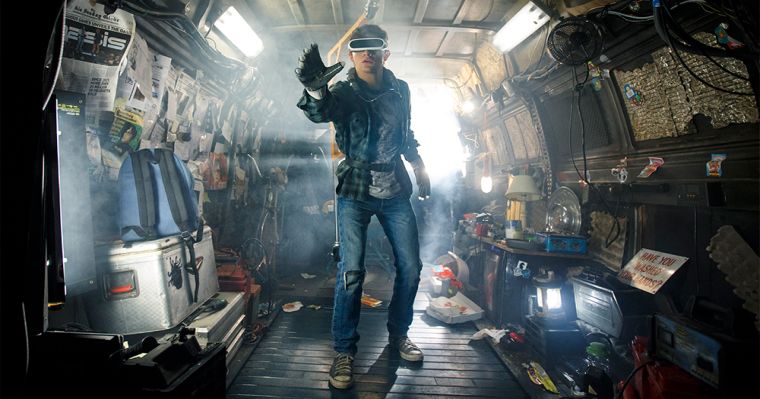2 min to read
Ready, Player One
If Jackson Pollock were a 21st century sci-fi film, it would undoubtedly be Ready Player One.
by Zach Saul

Ready Player One made me deeply dizzy, forced to smile, and deeply nostalgic in the same two hours. Despite plenty of problems is absolutely worth the price of admission. While I found the “Oasis” universe to be pretty unattractive, and unnecessary - I have to admire it’s expansiveness. The filmmakers for Ready Player One clearly did a lot of thinking about what a world inside a video game would look and feel like, and created an aesthetic that if nothing else was unique, and distinct. The problem this creates (and it’s not specific to Ready Player One - Marvel has some movies that suffer from this as well) is too often I felt like I was watching someone else play a video game instead of exploring a new universe.
The most successful part of Ready Player One is the mystery - and how Halladay (the Oasis’ creator) hides each clue in relation to his life regrets and his deepest beliefs (a credit to the source material). Halladay’s character was the closest movie-equivalent I’ve seen to Dumbledore in a long time, and it was such a pleasure to watch his pacifist, clever genius on-screen. The idea of someone having a living archive of their entire life in a museum (as Halladay did) is both a fascinating concept and deeply narcissistic. As a character, agrandizing constictions like a living archive or a Galdalf avatar challenge you to dislike Halladay - but an earnestness and disinterest in fortune lay those trepidations to bed. The surface level fantasy of Ready, Player One is Parzival’s glory in uncovering the keys to control the oasis. However the deeper fantasy is the idea a persons mistakes and legacy can mean something deeper (as Halladay’s did) and nobody dies in vein.
I’ve heard from several people who read the book that Ready, Player One the movie lacks the classism and socio-economic complexity that the book has. The addition of more real world problems would have made me more interested in the Oasis. How is a poor person’s experience in the Oasis different from a rich person’s? What motivation does anyone have to enter the oasis if all their problems follow them into this digital universe? The movie version of the Oasis was very “one-noted” and if your not a fan of explosions and giant monster battles there isn’t much to grab onto.
The Good: Simplistic as they might have been, Sorrento and the IOI team served a really entertaining villain and had me smiling every time something bad happened to them. There are giant corporations trying to monetize every corner of the internet as we speak so this part of the outer-narrative wasn’t far from reality. In addition, although some references from the book didn’t make the film-adaptation, the scenes inside the Overlook hotel were incredible, and hilarious.
The Bad: Ready Player One suffers from being too frenetic, and doesn’t spend enough time exploring why “The Oasis” matters, and why we should care about it. We understand the mechanics of “The Oasis”, and get our fair share of cheesy dialogue (particularly between Artemis and Parzival) but don’t get a sense of the “inner socioeconomic society” we would need to justify the screen-time “The Oasis” gets.
| Movie Details | |||||
|---|---|---|---|---|---|
| Studio: | |||||
| Director: | Steven Spielberg | ||||
| Written By: | |||||
| Staring: | Tye Sheridan | Olivia Cooke | |||

Comments